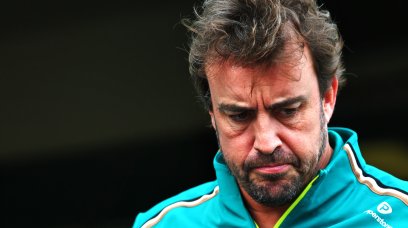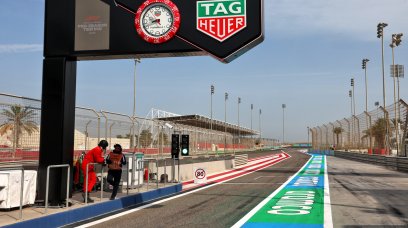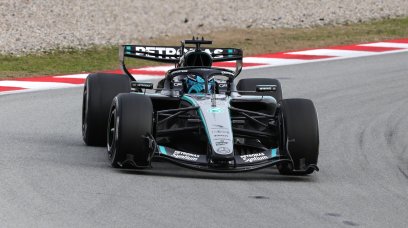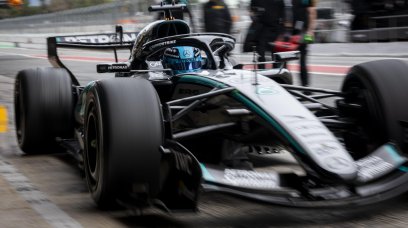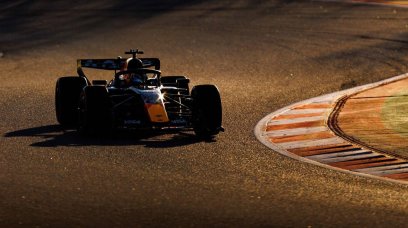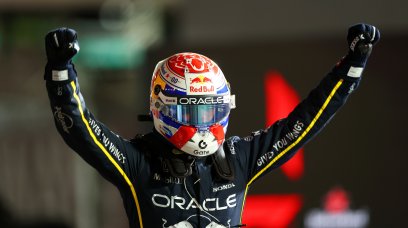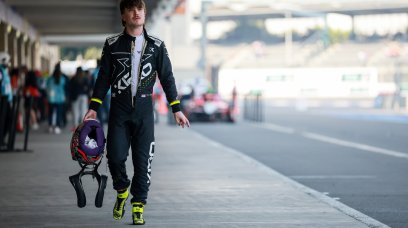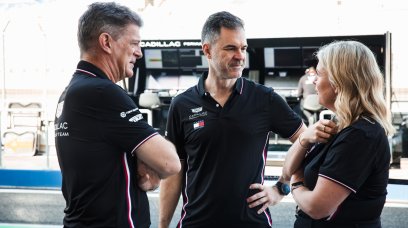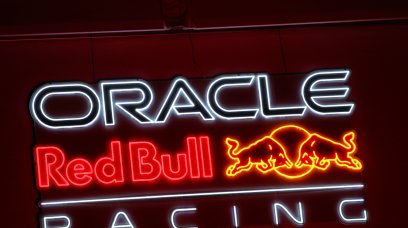2022 will go down as one of the most dominant seasons any driver will ever produce in Formula 1 thanks to Max Verstappen's rewriting of the record books. He claimed 15 Grand Prix wins (plus two Sprints) and scored 454 points, breaking Lewis Hamilton's 2019 record by 41. The Dutchman won nine of the final 11 races as he followed the likes of Alberto Ascari, Jim Clark, Mika Hakkinen and Fernando Alonso in becoming a two-time World Champion. Armed with the potent weapon that was the RB18, Verstappen easily saw off the main opposition to his title defence as Charles Leclerc and Ferrari imploded after their strong start to the campaign. This strength of the Scuderia coincided with Red Bull being at their weakest in the opening rounds due to a combination of reliability concerns and the car being massively overweight, coupled with the fact that Adrian Newey and his team started work on the RB18 relatively late owing to the push for the 2021 title in the white-hot battle against Lewis Hamilton. It was this that left Verstappen harbouring doubts as to whether he could go back-to-back in 2022, as he revealed to RacingNews365.com in an exclusive interview.
Verstappen's doubts
"Honestly, that was a very big question mark," replied Verstappen when asked if he thought retaining the championship was a real possibility. "Because of the new regulations, we had no clue on where we were going to be. "Everything looked good in the wind tunnel and with the calculations, but you don't know what other people have found. Did they find a trick [that we missed]? "When the cars came onto the grid in Bahrain [for a pre-season photoshoot], to take the pictures, there were so many different ideas and you are like: 'Did we do the right thing?' "Our problem in the beginning was that we were heavily overweight, so we couldn't really show the true potential of the car, but over time we got rid of it and the car really came alive. "Upgrades helped, but mainly [it was losing] weight [that helped us]."
Red Bull not affected by porpoising
One of the big factors of the 2022 season was the porpoising affecting cars as part of the new ground effect technical regulations. While some squads such as Mercedes were badly affected by it, Red Bull were relatively porpoising-free, part in thanks to Newey's experience of ground effects back in his sportscar and IndyCar days in the 1980s. Verstappen feels that this absence of the phenomenon enabled Red Bull to steal an advantage over the chasing pack, though this also came with challenges given the 2022 cost cap. "Some of the teams had a few more like issues to solve, while we could more or less just focus on weight reduction and performance," he explained. "But that weight reduction was really unexpected. "In a way, people were solving porpoising and we were solving our weight but we would have probably preferred to focus even more on performance. "It was expensive and that is a problem with the budget cap. "You have already calculated certain upgrades, and suddenly you have to shift towards weight reduction and finding where to do it is not the easiest." Verstappen retired from both the season-opener in Bahrain and again in round three in Australia as Leclerc opened up an early points lead, but the Dutchman is firm that the problems were not linked to the RB18 needing a diet. "At the time, we didn't really have anything on the car which would reduce the weight," he said. "We had to wait a few weeks into the season to get [the upgrades], so it had nothing to do with that. "Honestly, in testing, we had almost no issues, and all the issues we had [in the season] were really unexpected. "It was a bit of a shame, and something we couldn't really explain at the time why they had happened, but luckily the team solved them very quickly."
2021 vs 2022 cars
The 2022 breed of cars were significantly beefed up on their 2021 cousins, with the weight heavier and also reduced visibility for the driver. It is something Verstappen was adamant about when asked which he preferred. "Last year's car was more agile because the weight was down," he pointed out. "The visibility was a lot better on the front axle, but to be honest, in the high-speed corners, these cars are fine, but in the low-speed, they are a bit lazy. "At high-speed, they are quite stable, whereas last year's car was a bit more twitchy, but again in the low-speed, the weight really takes over. "It is a bit of a shame, but at the end of the day, the cars were made for better racing and they deliver that. "You have to set them up a lot stiffer and we've got used to them now. "Initially, I was struggling with the ride, not that it was hurting my back or anything, but it was very different to drive for sure."
Most read
